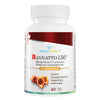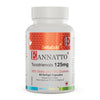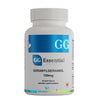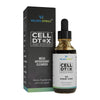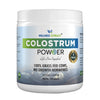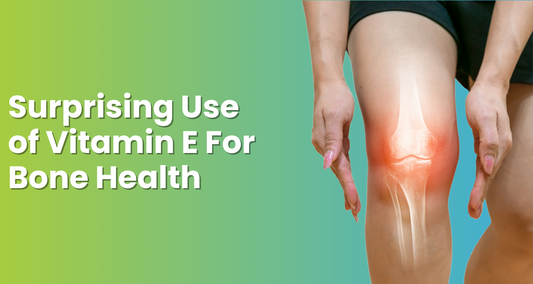Did you know that inflammation is a major contributing factor to a wide range of health issues? The good news is that you can manage inflammation by incorporating certain foods into your diet.
In this blog, we will explore the top foods that fight inflammation, providing you with a powerful arsenal against inflammation.
Key Takeaways:
- Inflammation can lead to serious health problems.
- You can manage inflammation by adding specific foods that fight inflammation to your diet.
- These foods have natural properties that can help manage inflammation in the body.
- An anti-inflammatory diet can provide significant health benefits.
- By incorporating these foods into your meals, you can support better overall health and well-being.
Understanding Inflammation and Its Impact on Health
Inflammation is a natural response by our body's immune system to injury or infection. It is an essential process for healing and protecting our bodies. However, inflammation can have harmful effects on our health, contributing to various diseases.
Research has shown that diet plays a significant role in managing inflammation and promoting overall health. By incorporating foods that fight inflammation into our daily meals, we can help manage inflammation and improve our well-being.
How Certain Foods Contribute to Inflammation
Some foods have been found to contribute to inflammation in the body. These foods are often high in refined sugars, unhealthy fats, and processed ingredients. By understanding which foods to avoid, we can make better dietary choices to reduce inflammation.
Here is a list of common inflammatory foods that you may want to steer clear of:
- Processed meats
- Refined grains, such as white bread and pasta
- Sugary beverages
- Artificial trans fats
- Excessive alcohol
Avoiding these foods and opting for healthier alternatives can significantly contribute to reducing inflammation in the body.
When it comes to managing inflammation through diet, it's important to focus on incorporating anti-inflammatory foods that can help fight inflammation and promote healing.
Importance of an Anti-Inflammatory Diet
Inflammation is a natural response by our immune system to protect our bodies from potential harm. However, when inflammation becomes chronic, it can lead to various health issues such as heart disease, diabetes, and autoimmune disorders. One effective way to manage inflammation is by following an anti-inflammatory diet plan.
By incorporating the best foods for inflammation into our meals, we can manage the risk of inflammation and promote better overall health. These foods are rich in nutrients and antioxidants that help counteract the inflammatory response in our bodies.
The Best Foods for Inflammation:
- Fatty Fish: Fish such as salmon, tuna, and sardines are high in omega-3 fatty acids, which have been shown to manage inflammation.
- Leafy Greens: Vegetables like spinach, kale, and broccoli are packed with antioxidants and phytochemicals that manage inflammation.
- Berries: Blueberries, strawberries, and raspberries are rich in antioxidants, which help combat inflammation and protect against diseases.
- Nuts: Walnuts, almonds, and pistachios contain healthy fats and antioxidants that have anti-inflammatory properties.
- Turmeric: This vibrant spice contains curcumin, a compound known for its powerful anti-inflammatory effects.
By including these foods in our anti-inflammatory diet plan, we can nourish our bodies with the right nutrients and minimize the risk of chronic inflammation. It's important to note that these foods work synergistically to provide the greatest benefits, so incorporating a variety of them into our meals is key.
In the next section, we will explore specific foods that fight inflammation and their unique benefits. With this knowledge, we can make informed choices when it comes to planning our meals and managing inflammation in our bodies.
Foods That Fight Inflammation and Their Benefits
Inflammation can be a source of discomfort and can contribute to several chronic health conditions. However, incorporating certain foods into your diet can help combat inflammation and promote overall well-being.
In this section, we will explore a variety of foods that have proven anti-inflammatory properties and discuss the benefits they offer in reducing inflammation.
Include these inflammation-fighting foods in your meals to harness their healing power:
- Turmeric: Known for its active compound, curcumin, turmeric possesses potent anti-inflammatory properties. Incorporate it into your cooking or enjoy a soothing cup of turmeric tea.
- Berries: Blueberries, strawberries, and raspberries are rich in antioxidants that help manage inflammation. Add them to your breakfast bowl or enjoy them as a healthy snack.
- Fatty Fish: Salmon, mackerel, and sardines are packed with omega-3 fatty acids, which have been shown to manage inflammation. Include these fish in your diet two to three times a week.
- Leafy Greens: Spinach, kale, and collard greens contain high levels of antioxidants and anti-inflammatory compounds. Incorporate them into your salads, soups, or smoothies.
- Extra Virgin Olive Oil: This heart-healthy oil contains oleocanthal, which has similar anti-inflammatory effects as NSAIDs. Drizzle it on salads or use it for cooking.
Now that you know the power of these inflammation-fighting foods, let's explore some delicious recipes that incorporate these ingredients:
Turmeric Cauliflower Rice
Ingredients:
- 1 head of cauliflower, grated
- 1 tablespoon extra virgin olive oil
- 1 teaspoon turmeric powder
- 1/2 teaspoon cumin powder
- Salt and pepper to taste
Instructions:
- Heat the olive oil in a skillet over medium heat.
- Add the grated cauliflower and cook for 5-7 minutes until tender.
- Stir in the turmeric, cumin, salt, and pepper, and cook for an additional 2 minutes.
- Remove from heat and serve as a side dish or base for stir-fries.
Berry Spinach Salad
Ingredients:
- 2 cups baby spinach
- 1 cup mixed berries (blueberries, strawberries, raspberries)
- 1/4 cup sliced almonds
- 2 tablespoons balsamic vinaigrette dressing
Instructions:
- In a salad bowl, combine the baby spinach, mixed berries, and sliced almonds.
- Toss with balsamic vinaigrette dressing until well coated.
- Serve as a refreshing and nutritious salad.
By incorporating these foods into your diet and trying out our inflammation-fighting recipes, you can take control of chronic inflammation and promote a healthier, more vibrant you.
Incorporating Anti-Inflammatory Foods into Your Diet
When it comes to reducing inflammation through diet, incorporating anti-inflammatory foods into your daily meals is crucial. By following a well-balanced anti-inflammatory diet plan, you can proactively combat inflammation and promote better overall health.
Here are some tips and suggestions to help you seamlessly incorporate these inflammation-fighting foods into your diet:
- Plan your meals: Take the time to plan your meals for the week, ensuring that you include a variety of anti-inflammatory foods. Focus on fresh fruits and vegetables, whole grains, lean proteins, and healthy fats.
- Stock up on groceries: Make a list of the foods you need and head to the grocery store with a plan. Avoid processed foods and opt for organic, locally sourced options whenever possible.
- Experiment with recipes: Look for delicious recipes that feature anti-inflammatory ingredients. Incorporate spices like turmeric, ginger, and cinnamon, which have potent anti-inflammatory properties.
- Balance your plate: Aim to create well-rounded meals that include a mix of vegetables, proteins, and grains. This will ensure you're getting a variety of nutrients that contribute to reducing inflammation.
- Stay hydrated: Don't forget to drink plenty of water throughout the day. Staying hydrated is essential for maintaining overall health and supporting the body's natural processes.
By following these recommendations and incorporating anti-inflammatory foods into your diet, you can create a powerful defense against inflammation and its associated health issues. Start making positive changes today for a healthier tomorrow.
Conclusion
In conclusion, incorporating foods that fight inflammation into our diet is crucial for maintaining overall health and well-being. By recognizing the impact of certain foods on inflammation, we can make conscious choices that support our body's natural healing process.
From anti-inflammatory staples like leafy greens, fatty fish, and berries to spices like turmeric and ginger, these natural remedies offer a range of benefits. They not only manage inflammation but also provide essential nutrients that support our immune system and promote optimal health.
By embracing an anti-inflammatory diet and prioritizing foods that manage inflammation, we can take an active role in managing our health. Combined with a balanced lifestyle, regular exercise, and adequate rest, these dietary changes can significantly improve our quality of life and help prevent conditions associated with inflammation.
FAQs
What are some foods that fight inflammation naturally?
Some foods that fight inflammatory properties include turmeric, ginger, fatty fish like salmon, olive oil, leafy greens, berries, nuts, and seeds.
How can I reduce inflammation through my diet?
By following an anti-inflammatory diet plan, you can manage inflammation in your body. This involves incorporating foods that fight inflammation, such as fruits, vegetables, whole grains, lean proteins, and healthy fats while avoiding or limiting inflammatory foods like processed snacks, sugary beverages, and foods high in saturated fats.
What is an anti-inflammatory diet plan?
An anti-inflammatory diet plan focuses on consuming foods that have anti-inflammatory properties. This includes a wide variety of fruits, vegetables, whole grains, lean proteins, and healthy fats. It also emphasizes limiting or avoiding inflammatory foods, such as processed snacks, sugary beverages, and foods high in saturated fats.
Which are the best foods for inflammation?
Some of the best foods for inflammation include tomatoes, fatty fish, leafy greens, berries, nuts, seeds, turmeric, ginger, and green tea. These foods are packed with antioxidants and other compounds that can help reduce inflammation in the body.
Can you provide some inflammation-fighting recipes?
Yes! Here are a few inflammation-fighting recipes: 1. Turmeric-ginger roasted salmon with quinoa and roasted vegetables. 2. Berry spinach salad with walnuts and a lemon-turmeric dressing. 3. Curried lentil soup with vegetables and coconut milk. 4. Mediterranean-style grilled chicken with roasted garlic hummus and a side of sautéed greens. These recipes are not only delicious but also incorporate foods that fight inflammation.
How can I incorporate anti-inflammatory foods into my diet?
You can incorporate anti-inflammatory foods into your diet by meal planning and grocery shopping with a focus on these foods. Try to include a variety of fruits, vegetables, whole grains, lean proteins, and healthy fats in your daily meals. Experiment with different recipes and cooking methods to make your meals flavorful and enjoyable.
Why is it important to manage inflammation through diet?
Inflammation in the body can contribute to various health issues. By following an anti-inflammatory diet plan and incorporating foods that fight inflammation, you can proactively reduce the risk of these health problems and improve your overall well-being.
Can natural remedies for inflammation be effective?
Yes, natural remedies for inflammation, such as incorporating anti-inflammatory foods into your diet, can be effective in reducing inflammation in the body. These remedies work by providing the body with the necessary nutrients and compounds to combat inflammation naturally.
